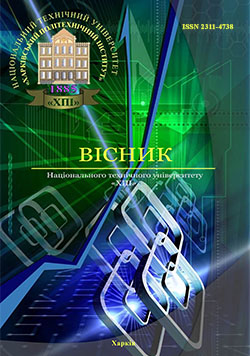ENERGY PROJECT MANAGEMENT SYSTEM: BENEFITS, PRINCIPLES AND RISKS
DOI:
https://doi.org/10.20998/2413-3000.2016.1173.10Keywords:
energy project, management system, benefits, improvement, principle, energy efficiencyAbstract
The essence of an effective energy project management system was described, as well as the main benefits of its implementation at the company level were characterized. Such outcomes as possible savings unlocking, improving risk management, reliability and productivity, reputational issues described as key results from the realization of an energy project management system. Among the main principles according to which an effective energy project management should be implemented the fallowing aspects were discussed: leadership and responsibility, energy policy and energy performance, communication, and continuity of energy policy. The conclusions about the main risks that may occur during implementation of an effective energy project management system were also systematized in this article.References
Henrie M. (2008). Renewable Energy Projects: Project Management Opportunities, Challenges, and Risks. asapm.org. Retrieved from http://www.asapm.org/articles/Renewables10-2008.pdf.
The strategic case for energy management [Establishing an energy management system]. eex.gov.au. Retrieved from http://eex.gov.au/energy-management/establishing-an-energy-management-system/.
The Energy Efficiency Exchange website. eex.gov.au. Retrieved from http://eex.gov.au/energy-management/the-strategic-case-for-energy-efficiency/.
Wu Y., Li J., Wang J., & Huang Y. (2012). Project portfolio management applied to building energy projects management system [Renewable and Sustainable Energy Reviews]. sciencedirect.com. Retrieved from
http://www.sciencedirect.com/science/article/pii/S1364032111004473.
Kleindorfer, P. R (2011). Risk management for energy efficiency projects in developing countries. unido.org. Retrieved from http://www.unido.org//fileadmin/user_media/Publications/Research_and_statistics/Branch_publications/Research_and_Policy/Files/Working_Papers/2011/WP062011%20Risk%20Management%20for%20Energy%20Efficiency%20Projects%20in%20Developing%20Countries.pdf.
Financial Risk Management Instruments for Renewable Energy Projects [United Nations Environment Programme Division of Technology, Industry and Economics]. unep.org. Retrieved from http://www.unep.org/pdf/75_Risk_Management_Study.pdf.
Karp J, Wrathall J., & Gerard M. (2015). Managing the Risks of Renewable Energy Projects in Developing Countries. renewableenergyworld.com. Retrieved from http://www.renewableenergyworld.com/articles/2015/05/managing-the-risks-of-renewable-energy-projects-in-developing-countries.html.
Downloads
Published
Issue
Section
License
Copyright (c) 2016 Kateryna Y. DEDELYUK

This work is licensed under a Creative Commons Attribution-NonCommercial-ShareAlike 4.0 International License.
Our journal abides by the Creative Commons copyright rights and permissions for open access journals.
Authors who publish with this journal agree to the following terms:
Authors hold the copyright without restrictions and grant the journal right of first publication with the work simultaneously licensed under a Creative Commons Attribution-NonCommercial-ShareAlike 4.0 International License (CC BY-NC-SA 4.0) that allows others to share the work with an acknowledgement of the work's authorship and initial publication in this journal.
Authors are able to enter into separate, additional contractual arrangements for the non-commercial and non-exclusive distribution of the journal's published version of the work (e.g., post it to an institutional repository or publish it in a book), with an acknowledgement of its initial publication in this journal.
Authors are permitted and encouraged to post their published work online (e.g., in institutional repositories or on their website) as it can lead to productive exchanges, as well as earlier and greater citation of published work.

